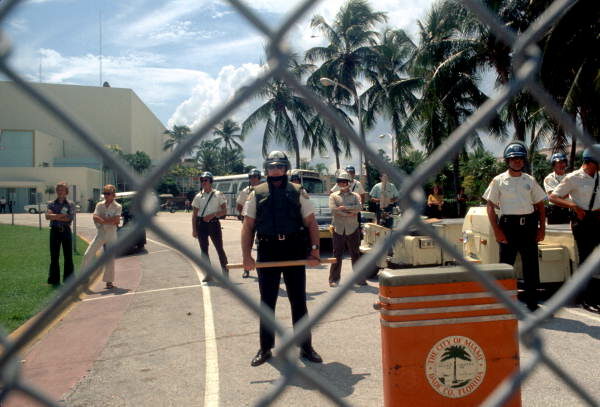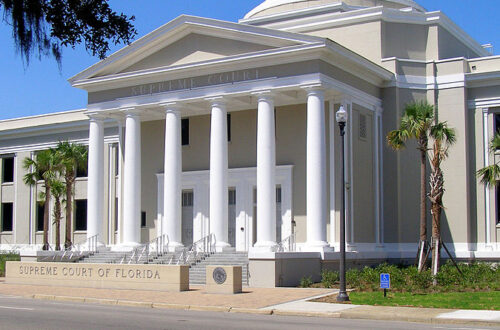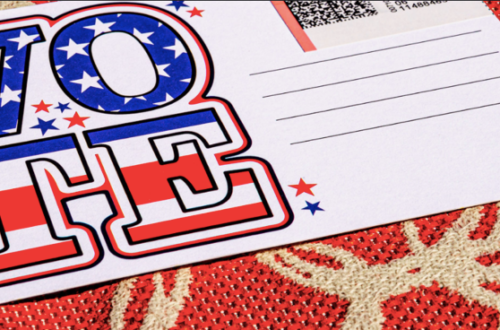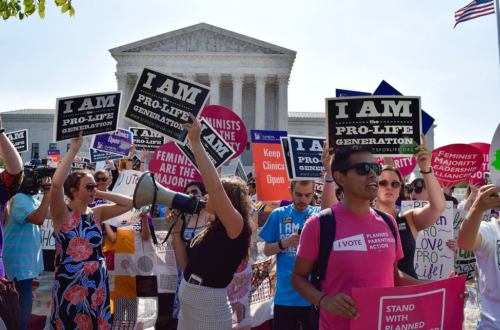A West Palm Beach courthouse was the setting of a historic moment that saw justice return to families broken up by officer-involved shootings. March 7 marked the first time a police officer was convicted of an on-duty shooting in the state in over 30 years.
The police officer, Nouman Raja, was found guilty of Manslaughter and attempted murder for shooting Cory Jones, a stranded motorist on an I-95 off-ramp. Jones, a 31-year-old black male, was on phone with roadside assistance at the time of the incident.
A recording of the conversation was heard at trial and showed that Raja did not properly identify himself as an officer and had lied about the events surrounding the shooting.
The fact that Raja was convicted is a big step forward for the state, which has a reputation of police misconduct and abuse of civil liberties. According to the American Civil Liberties Union of Florida (ACLU), they receive “hundreds of complaints of police misconduct every year, ranging from verbal abuse, to racial profiling, to use of excessive force, to inappropriate use of lethal forces.”
Take for example the 1989 case mentioned at the start of this article. Thirty years ago police officer William Lonzo fatally shot a black man and claimed self-defense. Lonzo fired a single shot at a motorcyclist speeding away from another patrolman. The bullet struck the driver, Clemont Lloyd, in the head causing him to crash into another vehicle killing his passenger in the process. Lonzo was arrested and after a deeply divisive case that saw rallies from both sides, he was sentenced to seven years in prison but allowed to remain free on bond pending appeal.
Come June 1991 Lonzo’s conviction was reversed by a court of appeal and a retrial was held in Orlando in 1993. This time around Lonzo walked away a free man. This is just one of the many police officers who has faced no repercussions for their actions under the guise of self-defense.
Florida has an average police killing of 4.61 percent for all people and 9.47 percent for black people. These percentages show that there exists racial prejudice in our very own police force.
In fact, the Cory Jones case was not the only case that went court this month that related to an officer shooting a black man. In Miami, the Charles Kinsey case looked into Jonathan Aledda’s charge of attempted manslaughter against the 47-year-old mental health therapist.
Kinsey was shot in the leg while attempting to help his autistic patient return to their group home. Kinsey laid on the floor, hand ups, asking the police that surrounded them not to shoot. His pleads were not enough and a shot was fired anyway.
On March 16, a jury acquitted Aledda on a culpable negligence charge but couldn’t reach an agreement on the manslaughter count.
The ACLU of Florida says that the importance of these cases stems from repeated instances where officers have faced no repercussion for their use of excessive and/or deadly force. This problem is not limited to the state of Florida, however. We have all heard the name “Michael Brown” among many others.
It is an accepted fact that the job of police officers is difficult. However, the sheer amount of black lives taken at the hands of police officers is indicative of a deeper problem that must be dealt with.
The situation may soon become worse as a result of Florida’s new proposed texting bill. While this, fortunately, does not lead to physical harm, it’s been challenged as a vehicle for legal racial profiling.
Recently added to a bill meant to strengthen the ban on texting and driving, is the need to record the race and ethnicity when ticketing those found committing the infraction. This brings many concerns to minority groups who fear that they may be targeted as a result of this policy.
We often talk of police brutality nationwide but haven’t given much attention to this problem statewide. The Cory Jones case, the Charles Kinsey case, and the potential racial bias in State Bill 76, all demonstrate police misconduct, or at minimum, our acceptance of it, in our backyard.
Police guard the Miami Beach Convention Hall during the 1972 Republican National Convention. ( Public Domain photo by Tony Schweikle via the State Archives of Florida.)





